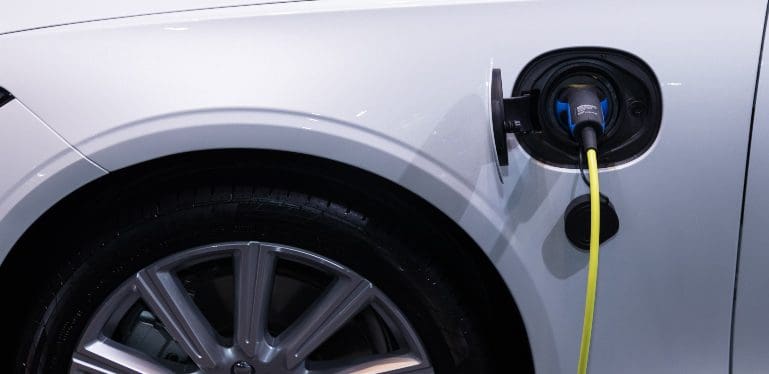Electric vehicles are becoming a more popular choice, and the market is expected to expand further, with manufacturers rushing to create new electric models. What makes buying an electric car attractive are the subsidies – there are many programs across the globe created by the governments to incentivise EVs purchases (electric vehicles). In the UK, these include paying no road tax, reduced or no parking charges and a 75% reduction of fees when installing a home charging point.
Types of electric cars:
Battery Electric Vehicle (BEV)
BEV is a pure electric car with a rechargeable battery (typically lithium-ion), which runs only on electricity instead of hybrid variants. They also emit no emissions and are the eco-friendliest of the bunch. However, it would be best to consider a few factors, such as longer charging types and a limited battery range. Examples of popular BEVs include Tesla Model 3, Nissan Leaf and BMW i3.
Hybrid
This type mixes the best of both worlds – a petrol (gas) or diesel engine and a battery with an electric motor which makes it a hybrid. They require no charging, which can be more convenient than a purely electric car, especially if you’re short on time. It’s an excellent option for urban driving. However, if you’re regularly taking highway trips and travel at higher speeds, hybrid may not be the best the most suitable alternative. Some of the hybrid cars include BMW 330e, VW Passat and Toyota Prius.
Plug-In Hybrid Vehicle (PHEV)
A PHEV is essentially a hybrid as it runs on a combination of an electric motor and a conventional engine but with larger batteries. The difference is that it needs to be charged like an electric car and can also be charged through regenerative braking. It has a more extended range than your typical hybrid and is one of the best options if you have range anxiety. If you want to buy a PHEV, it will be a bit more expensive than a conventional hybrid due to a larger battery pack. Popular models of PHEVs are Hyundai Ioniq, Skoda Superb iV & Kia Niro.
Things to consider before buying your first electric car
Cost
Initially, electric cars can be more expensive to purchase. However, down the line, it’s more affordable than a diesel or a petrol (gas) car, especially when it comes to taxes and running costs, so it evens out. Also, don’t forget that there are a lot of programs designed to make EVs more affordable. Other alternatives to make it cheaper include buying a pre-owned electric car or leasing a brand new EV for less.
Lifestyle
Firstly, you should determine what the car will be used for. Are you a frequent highway (motorway) driver and cover many miles (or kilometres), or perhaps you’re an urban dweller and only use your car occasionally? This will dictate the type of electric vehicle that is the most suitable for you.
Charging
Additionally, don’t overlook the charging aspect. For some people, a hybrid is more convenient as you don’t need to charge it, while others with EVs and PHEVs don’t mind the hurdles, such as installing a home charging point that come with such vehicles.
Is buying an electric car worth it?
Many people choose to buy an electric vehicle because it’s better for the environment and it is cheaper to run than a diesel or petrol (gas) car. Over the years, the range has improved. Batteries are covered under manufacturer warranties that last for about eight years, providing peace of mind.
In the end, whether it’s worth it will depend on your car priorities, such as how many miles you’ll cover, where and how you’ll be driving, and whether it will fit with your lifestyle. Either way, take your time, do your research and don’t be afraid to ask for sound advice.


